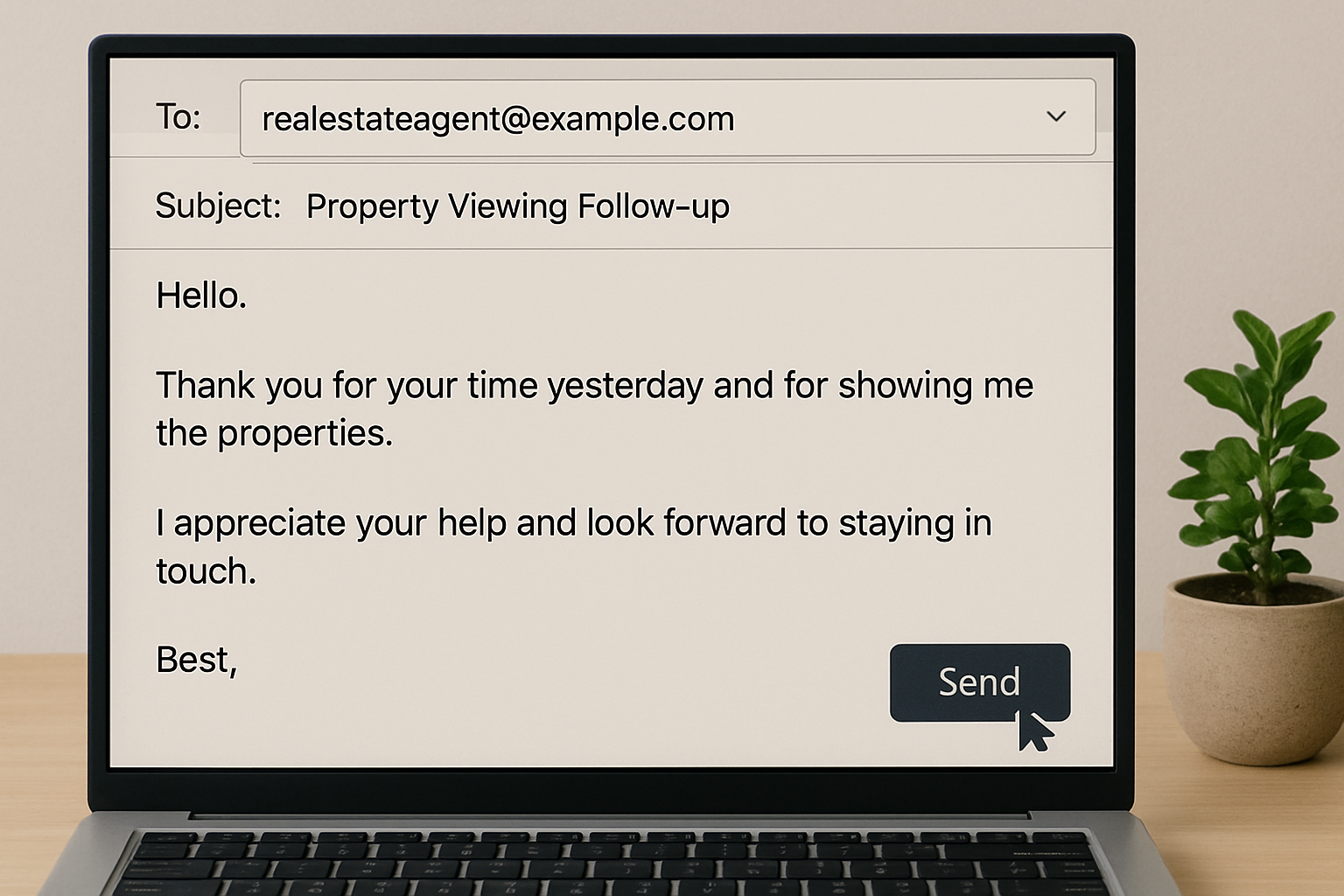Have you ever heard of “bulk sale properties” if you are considering real estate investment? This investment method, which differs from the traditional method of purchasing a single unit in a condominium, has the potential to achieve higher returns and more efficient asset formation.
Bulk sale properties are an investment method in which multiple units within a condominium complex are purchased as a package. While this method offers the scale advantages that cannot be achieved through individual condominium unit investments, it also comes with unique risks and considerations.
In this article, INA&Associates Co., Ltd. will provide a detailed explanation from a practical perspective, covering the basic concepts of bulk-sale properties, their specific advantages and disadvantages, effective search methods, and important checkpoints to consider when purchasing. This information will be valuable for those seriously considering asset formation through real estate investment.
Basic Knowledge of Bulk-Sale Properties
What Are Bulk-Sale Properties?
Bulk-sale properties refer to properties where multiple units within a condominium complex are sold as a package.The term “bulk” in English means “a large quantity” or “in bulk,” and in the real estate industry, it refers to the practice of selling multiple properties together.
Specifically, examples of bulk sales include selling 10 units out of a 40-unit condominium complex, or a real estate developer purchasing unsold units from a condominium complex and reselling them in bulk to investors.
Differences from individual condominium unit investment
In traditional individual condominium unit investment, investors typically purchase a single unit and generate rental income from it. However, with bulk sale properties, investors acquire multiple units within the same building simultaneously, resulting in significant differences in both investment scale and returns.
Purchasing a single condominium unit has a small investment size and limitations for building substantial assets.On the other hand, purchasing bulk sale properties allows investors to create a situation similar to purchasing an entire building, enabling more efficient asset formation.
Background of bulk sales
The main reasons behind bulk sales include the following.
First, there is the disposal of non-performing loans by financial institutions. When borrowers who have obtained loans to purchase real estate become unable to repay their loans, financial institutions must exercise their mortgage rights to dispose of the properties.However, if the asset value of the collateralized real estate has declined, it may be difficult to recover the full amount through auction, leading to the choice of bulk sales.
Second, there are cases where real estate owned as corporate assets must be sold in bulk due to corporate bankruptcy or restructuring. In such cases, bulk sales are an effective means of quickly converting assets into cash.
Third, there is the disposal of unsold condominium units. If a developer's condominium project does not sell out, the remaining units may be sold in bulk to a resale agent, who then sells them to investors.
Four benefits of bulk-sold properties
Bulk-sold properties offer unique benefits not available through traditional condominium investments. Understanding these benefits can help improve the accuracy of investment decisions.
High expected returns
The biggest advantage of bulk-sold properties is the potential for high returns. Since multiple units are sold together, the price per unit tends to be lower than when purchasing a single unit.
Generally, bulk-sold properties can be acquired at approximately 70% of the market price. This is because sellers often need to liquidate quickly, making price negotiations more favorable. By purchasing at a discounted price, investors can acquire properties with higher returns.
For example, if a property that would typically sell for 20 million yen per unit can be acquired for 14 million yen per unit through bulk sales, the return on investment significantly improves even with the same rental income. With a monthly rent of 100,000 yen, the return on investment would be 6% with a regular purchase, but 8.6% with bulk sales, greatly improving investment efficiency.
Achieve high occupancy rates
Bulk-sale properties offer the advantage of high expected occupancy rates. This is because many bulk-sale properties are designed for residential use.
Residential-use properties are designed and constructed with the intention of being purchased for personal residence, so the specifications of the equipment installed tend to be superior to those of rental properties.In contrast, rental properties often use mass-produced or cost-effective equipment to reduce costs, while condominium-style properties prioritize high-quality equipment to enhance resident satisfaction.
Due to these differences in property specifications, condominium-style properties have a competitive advantage in the market at the same rent level. In fact, condominium-style rental properties are highly popular among tenants and can maintain high occupancy rates.
Securing the right to manage the condominium
Another major advantage of purchasing bulk-sale properties is that, in some cases, you can secure the right to manage the entire condominium.
When purchasing a single unit in a condominium, the owner's authority extends only to the interior of their own unit, and decisions regarding the management of the entire building (such as major repairs, equipment updates, and cleaning) must be made by others (such as the board of directors or management company).
This can be a major constraint for investors. For example, if you want to repaint the exterior of the building, you cannot proceed with the work without the consent of other unit owners.
However, with bulk-sale properties, you can secure management rights by acquiring a certain percentage (e.g., more than half) of the units. Once management rights are secured, you can decide on the timing of major repairs, equipment updates, and the frequency and quality of cleaning.
If you secure more than half of the units, you can generally decide the overall operational policies for the property on your own. Even if you do not reach half, acquiring a bulk-sale property allows you to exert significant influence over management, effectively achieving a state similar to owning an entire building.
Rich exit strategy options
Having multiple exit strategy options is another key advantage of bulk-sale properties.
When selling bulk-sale properties, you can sell individual units as residential properties, which enhances flexibility in sales strategies. Depending on the terms of bank loans, this is an option not available with single-building used apartments.
Depending on market conditions and individual financial needs, you can choose from various sale patterns such as selling all units at once, partial sales, or phased sales. This makes the property a versatile asset that can be rented out or sold, allowing for flexible responses tailored to the economic situation at any given time.
Item: Single-unit condominium Bulk-sale property
Purchase price: Market price 70% of market price
Yield: Standard High yield expected
Operating Rights Interior only Influence over the entire building
Occupancy Rate Varies by property High occupancy due to original specifications
Sale Method Per unit Flexible sale strategy
Investment Scale Small Medium to large
Disadvantages and Considerations of Bulk Sale Properties
While bulk sale properties offer attractive benefits, there are also disadvantages and considerations that investors should be aware of. Understanding these in advance will help you make appropriate investment decisions.
Limitations of risk diversification
The biggest disadvantage of bulk sale properties is that the risk diversification effect is limited. Although multiple properties are purchased together, in the case of bulk sales of individual units, all units are located within the same building.
This means that if there are any unfavorable conditions, such as a poor location, there is a higher risk that none of the units will be rented. For example, if the property is far from the nearest station or lacks nearby commercial facilities, it will be difficult to market it based on convenience.
Additionally, since you own multiple units within the same building, any issues affecting the entire building (such as the need for major repairs, management association operational problems, or neighborhood disputes) could impact all the units you own.
Management and operational constraints
Another significant drawback of bulk-sale properties is the management and operational constraints.
When considering renovations as a vacancy countermeasure, while interior renovations can be carried out freely, common areas such as entrances or exterior renovations cannot be modified independently. This is because such changes require agreement with other co-owners, and decisions cannot be made unilaterally.
Additionally, setting management fees, repair reserves, and selecting a management company also require consensus within the homeowners' association. Without securing operational control, it may be difficult to implement management policies aligned with your investment strategy.
High difficulty for beginners
Bulk sale properties are a less suitable investment method for real estate investment beginners. Since multiple properties are managed simultaneously, experience and expertise in comprehensively evaluating various factors are necessary.
Compared to investing in a single condominium unit, the investment amount is larger, so losses in case of failure are also greater. Additionally, the complexity of management tasks such as managing multiple units, handling tenants, and planning maintenance increases.
However, with appropriate knowledge and experience, it is still worth considering for beginners. For example, if you have experience in store management at your workplace, you may be able to apply that experience to property management.
Risk of poor-quality properties being included
One characteristic of bulk sales is that several properties are sold together, so there is a possibility that poor-quality properties may be included.
Some of these properties may pose high risks for rental management.If you make decisions solely based on price, there is a risk that the property may not find tenants and result in a loss.
In addition to basic investigations such as the location and safety of the property, it is important to thoroughly research its reputation, including whether it is an accident-prone property or if there are any undesirable facilities nearby.
Disadvantages Countermeasures Importance
Limited risk diversification effect Thorough investigation of location and surrounding environment High
Constraints on management and operations Securing management rights or building good relationships with the management association Medium
High difficulty for beginners Utilize expert support, invest in stages Medium
Mix of poor-quality properties Detailed investigation of individual properties, on-site verification High
Large investment amount Careful consideration of funding plans, confirmation of loan conditions High
Effective ways to find bulk sale properties
Bulk sale properties are special types of properties that are not commonly available in the general real estate market, so understanding effective ways to find them is important. By utilizing appropriate channels, you can increase your chances of finding high-quality bulk sale properties.
How to use portal sites
Real estate investment portal sites are an important source of information when searching for bulk sale properties. On major real estate investment sites, you can find relevant properties by searching for keywords such as “bundled sales,” “bulk sales,” or “multiple units.”
When using portal sites, it is important to check for updates regularly. Since bulk sale properties are not frequently listed on the market, we recommend setting up alerts to ensure you do not miss any new listings.
Additionally, it is important to gather as much information as possible not only about the property details but also about the seller's background and reasons for selling. This information can be useful for price negotiations and investment decisions.
Collaboration with Real Estate Agents
Collaborating with specialized real estate agents is the most reliable method for efficiently searching for bulk sale properties. In particular, agents specializing in investment properties or those with close ties to financial institutions may have access to information before it becomes available on the general market.
When selecting a real estate agent, it is important to focus on the following points. First, they should have extensive experience in handling bulk sale properties. Second, they should have a network of financial institutions and resellers. Third, they should be able to provide advice from the investor's perspective.
By building relationships with multiple agents and regularly exchanging information, you can increase your chances of obtaining high-quality property information quickly. Additionally, by establishing trust with agents, you may be introduced to special cases that are not shared with other investors.
Information gathering from financial institutions
Financial institutions are also an important source of information on bulk sale properties. In particular, banks and credit unions that handle non-performing loans may be considering disposing of properties through bulk sales.
When building relationships with financial institutions, it is important to first appropriately highlight your investment track record and financial strength. Financial institutions are seeking investors who can make reliable purchases, so clearly demonstrating your purchasing intent and funding capacity may lead to priority access to information.
Key points for selecting properties
When selecting bulk sale properties, it is important to focus on the following points.
First, location. Since you will be acquiring multiple units within the same apartment building, the location will greatly affect the overall profitability. It is necessary to comprehensively evaluate the convenience of the location, such as the distance from the nearest station, surrounding commercial facilities, educational institutions, and medical facilities.
Second, the quality and management status of the building. Even if the property is sold as a condominium, if the building is not properly maintained, long-term profitability cannot be expected. It is important to thoroughly check the exterior, common areas, and facilities, and to investigate the management association's operations.
Third, the reasonableness of the price. Even in bulk sales, it is necessary to carefully consider whether the price is appropriate compared to market prices. It is important to conduct a comparative analysis with similar properties in the surrounding area and accurately calculate the investment yield.
Search Methods Advantages Disadvantages Tips for Utilization
Portal sites: Abundant information, easy to compare and evaluate; intense competition, limited surface-level information; alert settings, regular checks
Real estate agents: Professional advice, access to non-public information; importance of selecting the right agent, fees apply; building relationships with multiple agents
Financial institutions: Access to distressed assets, room for price negotiation; difficulty in obtaining information; ability to highlight investment performance
Direct sales: No intermediary fees, direct negotiation; requires time and effort; narrowing down targets
Key Checkpoints When Purchasing Bulk-Sold Properties
When considering the purchase of bulk-sold properties, it is essential to conduct more thorough research and analysis than with typical condominium unit investments. By confirming the following key checkpoints, you can minimize investment risks.
Thorough Investigation of Location and Surrounding Environment
Investigation of location and surrounding environment is the most critical factor for the success of bulk-sold property investments. Since multiple units within the same building are acquired, the quality of the location directly impacts overall profitability.
Specifically, investigate the distance and travel time to the nearest station, access to multiple transportation lines, the availability of nearby commercial facilities (supermarkets, convenience stores, banks, etc.), educational institutions (elementary schools, middle schools, high schools), and medical facilities (hospitals, clinics).
Additionally, the future development potential of the area is an important factor. By researching long-term regional development plans such as redevelopment projects, new station construction, or the planned construction of large-scale commercial facilities, you can predict the future value of the property.
Detailed property survey
Individual property surveys comprehensively evaluate the structure, age, condition of facilities, and management status of the building.
For the building, we confirm compliance with earthquake resistance standards, the condition of exterior walls and roofs, and the maintenance status of common areas. In particular, the history of major repairs and future repair plans are important information for predicting future expenses.
Each unit is individually evaluated for floor plan, equipment specifications, and the need for renovation or remodeling.In bulk sales, where multiple units are purchased together, the need for major renovations in some units could significantly impact the overall profitability.
Cash Flow Simulation
Detailed cash flow simulations are essential to verify the feasibility of the investment through numerical analysis.
On the revenue side, we conduct a detailed survey of surrounding rental rates to set estimated rental rates for each unit. Vacancy rates should also be set at realistic levels based on past performance data and the status of surrounding properties.
On the expense side, accurately calculate management fees, repair reserves, property taxes, urban planning taxes, fire insurance premiums, and fees for outsourcing management to a management company. Additionally, consider future large-scale renovation costs and equipment replacement expenses.
Based on these cash flow projections, calculate the investment return rate, cash flow, and investment payback period to use as decision-making materials.
Checklist Items to Confirm Importance Research Method
Location conditions Station distance, surrounding facilities, future potential ★★★ On-site inspection, municipal documents
Building condition Structure, age, maintenance history ★★★ Building inspection, homeowners' association documents
Rental market rate Rental rates of similar properties in the area ★★★ Real estate websites, interviews with agents
Management status Management association operations, management company ★★☆ Management association meeting minutes, on-site inspection
Legal constraints Building Standards Act, Urban Planning Act ★★☆ Government office investigation, expert consultation
Financing conditions Interest rate, term, collateral valuation ★★★ Consultation with financial institutions
Summary
Bulk-sale properties offer an attractive investment method that enables high returns and efficient asset formation, which cannot be achieved through traditional single-unit condominium purchases.They offer price advantages (purchased at approximately 70% of market value), high occupancy rates due to original specifications, securing of apartment management rights, and flexible exit strategies, among other benefits.
On the other hand, there are also drawbacks to consider, such as limited risk diversification, management constraints, high difficulty for beginners, and the risk of poor-quality properties being mixed in. To appropriately manage these risks, thorough investigations of location and surrounding environment, detailed property inspections, and realistic cash flow simulations are essential.
To succeed in investing in bulk sale properties, it is important to acquire specialized knowledge, build relationships with reliable real estate agents, and carefully select properties. For beginners, we recommend starting with small-scale projects to gain experience and gradually expanding the scale of your investments.
If you are considering building a substantial asset portfolio through real estate investment, why not consider bulk sale properties as an option? With the right knowledge and preparation, you may be able to achieve significant returns that are not possible with traditional investment methods.
Frequently Asked Questions
Q1. Can beginners purchase bulk sale properties?
A1. Bulk sale properties require simultaneous management of multiple units, so basic knowledge and experience in real estate investment are desirable. We recommend that beginners start with a single condominium unit to gain experience and gradually move on to bulk sale properties. Additionally, seeking support from reliable real estate agents or experts can increase the likelihood of success even for beginners.
Q2. How much capital is required?
A2. The capital required to purchase bulk-sale properties varies significantly depending on the size and location of the property. Generally, an investment of several million to several hundred million yen is required. It is common to prepare approximately 20–30% of the property price as equity and finance the remainder through bank loans. It is important to consult with multiple financial institutions in advance to determine the amount of capital that can be secured.
Q3. How should I choose a property management company?
A3. When selecting a property management company for bulk-sale properties, prioritize companies with the capacity and track record to handle the management of multiple units. Specifically, evaluate their tenant recruitment capabilities, maintenance response capabilities, financial management capabilities, and the thoroughness of their reporting systems. It is also important to comprehensively assess the service content and quality, not just the management fees. We recommend obtaining proposals from multiple management companies and comparing them.
Q4. What are the key considerations when selling?
A4. When selling bulk-sale properties, you have the option of selling the entire property in one transaction or dividing it into separate units. It is important to select the optimal sales strategy based on market conditions and funding needs. If opting for a divided sale, you must consider the impact on the management of the remaining units and any potential changes in ownership rights. Additionally, when determining the timing of the sale, it is important to consider the trends in the real estate market and any potential changes in tax regulations.
Q5. Is it easy to obtain financing?
A5. Financing for bulk sale properties is determined based on the collateral value of the property and the attributes of the investor. Properties with a residential development specification tend to have higher collateral value and are easier to obtain financing. However, since the investment amount is large, the investor's annual income, asset status, and investment experience are subject to strict review. It is important to consult with multiple financial institutions and compare and evaluate the optimal financing terms.

Daisuke Inazawa
Representative Director of INA&Associates Inc. Based in Osaka, Tokyo, and Kanagawa, he is engaged in real estate sales, leasing, and management. He provides services based on his extensive experience in the real estate industry. Based on the philosophy that “human resources are a company's most important asset,” he places great importance on human resource development. He continues to take on the challenge of creating sustainable corporate value.

.png)













